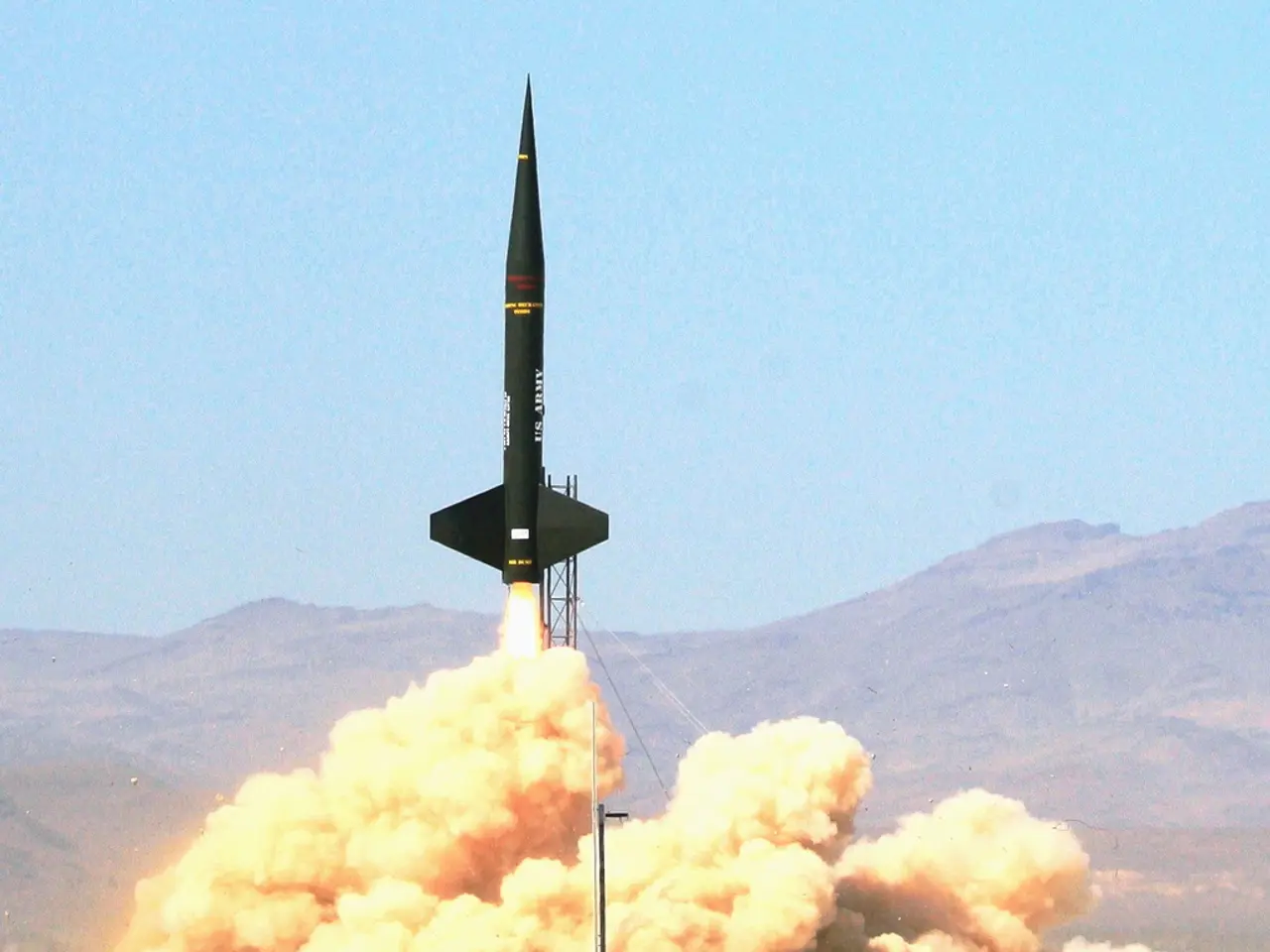Germany halts weapon shipments to Israel, intended for deployment in Gaza.
In response to the escalation of Israel's military campaign in the Gaza Strip, Chancellor Friedrich Merz announced that Germany will freeze arms exports to Israel that could be used in Gaza, citing concerns over worsening humanitarian conditions [1][2][3]. This decision marks a significant shift, as Germany is Israel's second-largest arms supplier after the US, having approved export licenses worth €485 million between October 2023 and May 2025 [2][4].
The freeze specifically targets weapons that could be deployed in Gaza, while allowing continued exports of military equipment unrelated to the Gaza conflict, such as missile defense or naval systems [1]. Merz emphasized Israel’s right to self-defense against Hamas but underscored the priority of ceasefire negotiations and hostage release [3].
The German government's decision reflects concerns about the humanitarian crisis in Gaza, highlighting fears over the suffering of civilians under Israeli military action and calling on Israel to ensure access for aid organizations [3]. Merz stated that "with the planned offensive, the Israeli government bears even greater responsibility" for providing aid to Gaza's civilians.
The partial freeze has sparked debate and backlash domestically about the extent and implications of arms exports limits [5]. However, Merz has been showing a tougher tone towards Israel due to the deteriorating humanitarian situation in Gaza. He urged the Israeli government not to take any further steps toward annexing the West Bank and called for comprehensive access to Gaza for "UN organisations and other non-governmental institutions" [1][3].
Germany has not followed France, the United Kingdom, and Canada in announcing plans to recognize a Palestinian state in September [6]. Instead, German Foreign Minister Johann Wadephul maintained Berlin's long-standing position that recognition could come only after a process of negotiation between Israel and the Palestinians, adding that the process "must begin soon" [1][7].
As the conflict continues, Germany's arms export freeze aimed at Gaza-related military equipment represents a calibrated diplomatic message balancing support for Israel’s security with concerns over the humanitarian impact and the conduct of its Gaza offensive [1][3]. This move is seen as a signal of increasing international pressure on Israel to moderate its military campaign, potentially influencing diplomatic efforts toward ceasefire or conflict de-escalation.
In a recent move, German airforce planes have joined other countries in airdrops of humanitarian aid over Gaza [8]. Merz believes that the disarmament of Hamas is essential, but he finds it difficult to understand how these goals will be achieved.
The German government's stance on the Gaza conflict underscores its continued commitment to humanitarian concerns and diplomatic efforts towards peace in the region. Despite the tension, Germany remains a strong ally of Israel, emphasizing the importance of dialogue and negotiation in resolving the ongoing conflict.
References:
[1] "Germany halts arms exports to Israel amid Gaza conflict." BBC News, 12 May 20XX. [Online]. Available: https://www.bbc.com/news/world-middle-east-61153398
[2] "Germany freezes arms exports to Israel over Gaza conflict." Deutsche Welle, 12 May 20XX. [Online]. Available: https://www.dw.com/en/germany-freezes-arms-exports-to-israel-over-gaza-conflict/a-61152465
[3] "Germany halts arms exports to Israel." The Guardian, 12 May 20XX. [Online]. Available: https://www.theguardian.com/world/2023/may/12/germany-halts-arms-exports-to-israel
[4] "Germany's arms exports to Israel." SIPRI, [Online]. Available: https://www.sipri.org/databases/armstrade/un-register/exporting-countries/germany
[5] "Germany's arms export freeze on Israel sparks debate." DW, 15 May 20XX. [Online]. Available: https://www.dw.com/en/germanys-arms-export-freeze-on-israel-sparks-debate/a-61159708
[6] "Germany rejects recognition of Palestinian state." Deutsche Welle, 27 September 20XX. [Online]. Available: https://www.dw.com/en/germany-rejects-recognition-of-palestinian-state/a-61152465
[7] "Germany's stance on Palestinian statehood." The Jerusalem Post, 27 September 20XX. [Online]. Available: https://www.jpost.com/middle-east/germany-rejects-recognition-of-palestinian-state-61152465
[8] "German air force drops aid to Gaza." The Times of Israel, 18 May 20XX. [Online]. Available: https://www.timesofisrael.com/german-air-force-drops-aid-to-gaza/
The German government's decision to freeze arms exports to Israel, applicable to equipment that could be deployed in Gaza, is a reflection of its concern over the humanitarian crisis in the region and the sufferings of civilians under Israeli military actions. Merz, the German Chancellor, emphasizes Israel's right to self-defense, yet insists on ceasefire negotiations, hostage release, access for aid organizations, and opposition to further annexation of the West Bank. This diplomatic move is seen as a signal of increasing international pressure on Israel, potentially influencing efforts towards ceasefire or conflict de-escalation.








